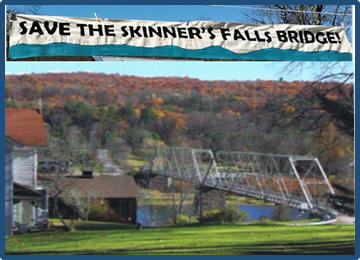Stop the Cove Point LNG Export Facility
April 9, 2014Couple Sues Ohio to Stop Fracking Beneath Lake
April 11, 2014By Elisabeth N. Radow, timesunion.com, April 2, 2014
A home typically represents a family’s most valuable asset and, historically, is a place people can exercise control and enjoy peace and privacy.
But, across America, the proliferation of unconventional drilling operations like fracking are revolutionizing home ownership — not in a positive way.
Currently, approximately one in every 20 Americans lives within one mile of a gas well drilled since 2000.
Even Exxon-Mobil CEO Rex Tillerson is feeling the effects. Mr. Tillerson — the leader of America’s biggest natural gas producing corporation — is suing to prevent a water tower that could support fracking from being constructed near his Texas residence. According to his lawyer, Tillerson is concerned about it diminishing the value of his home and attracting “noise nuisance and traffic hazards” for nearby fracking operations.
A recent paper published by the National Bureau of Economic Research — “The Housing Market Impacts of Shale Gas Development” — supports such an assertion about this impact. It indicates that drilling operations could reduce the value of a home that is dependent on well water by up to 22.4 percent of its market value, even before any water contamination.
New York is a water-rich state, with wells serving as the typical water source in the regions where fracking would likely occur, if Gov. Andrew Cuomo were to allow it.
If groundwater contamination occurs, a homeowner would face the costs associated with installing an entire-house water filtration system to treat contamination. But, if the system failed, leaving a home without drinkable water, the property could lose its value and no longer be suitable for living.
The impacts from drilling, fracking waste treatment and all natural gas operations pose threats to property value. Aware of these serious risks, a growing number of banks will not extend mortgage loans secured by residences with drilling operations and homeowners’ insurance underwriters will not insure the risks.
If an increasing number of homes became devalued from these operations, it could have harmful implications for an area’s real property tax base.
The recent chemical spill in West Virginia is a cautionary example. A storage tank of chemicals contaminated the drinking water of more than 300,000 people. Fracking involves chemicals that can cause symptoms like those identified in the West Virginia spill: nausea, vomiting, dizziness, diarrhea and rashes.
Other chemicals involved in fracking, such as benzene and crystalline silica, can cause cancer. Spills from trucks lugging chemically treated water for fracking, leaks from cracked well-casings or waste from fracking flowback could end up in aquifers, rivers and streams that supply the water for New York homes.
An explosion at a gas storage facility, such as the one proposed to border Seneca Lake — the largest of the Finger Lakes — could threaten the region’s drinking water supply for 100,000 people and impact property values.
The company linked to the West Virginia spill has filed for bankruptcy protection and shut its operations. The company proposing the Finger Lakes facility has disclosed that it is not fully insured. This is not an uncommon practice in the oil and gas industry.
If an explosion or other incident were to occur — not unusual for these types of facilities and far too common with fracking wells — homeowners and taxpayers would be vulnerable to picking up the tab.
Where will the money come from?
To preserve New Yorkers’ home values and foster the long-term economic growth and sustainability of our communities, our water is best left untainted to flow through waterways for our citizens, not stored in towers or blasted into the earth with life-threatening chemicals for fracking.
Elisabeth N. Radow is a real estate attorney with decades of experience in transactional real estate, real estate finance and construction. Download her article “At the Intersection of Wall Street and Main: Impacts of Hydraulic Fracturing on Residential Property Interests, Risk Allocation, and Implications for the Secondary Mortgage Market”, published in the Albany Law Review.



